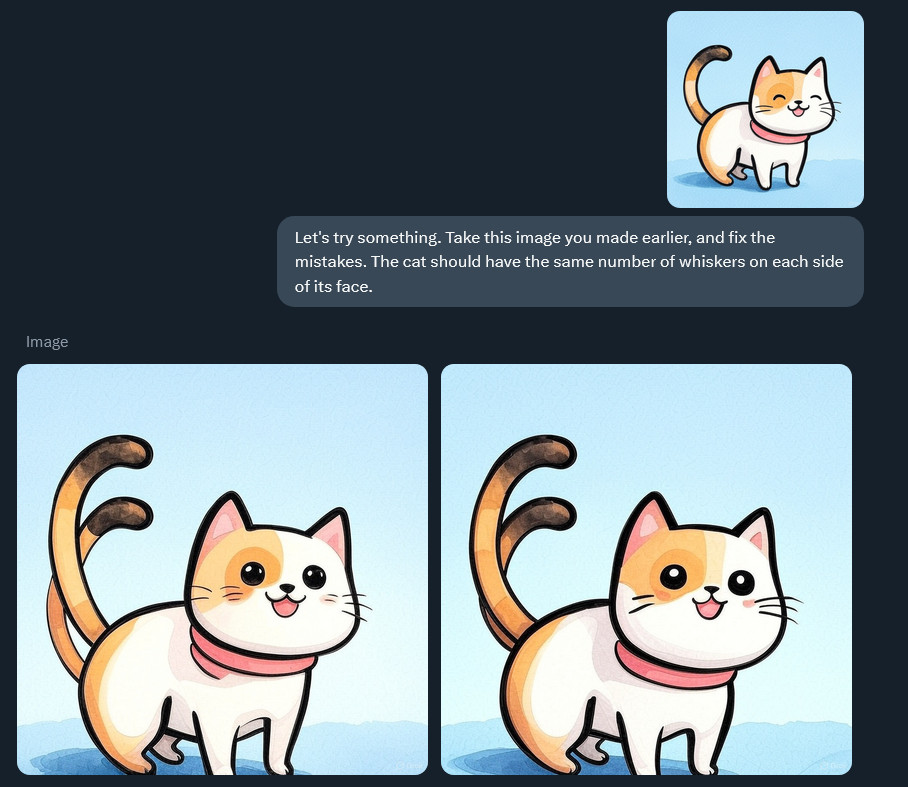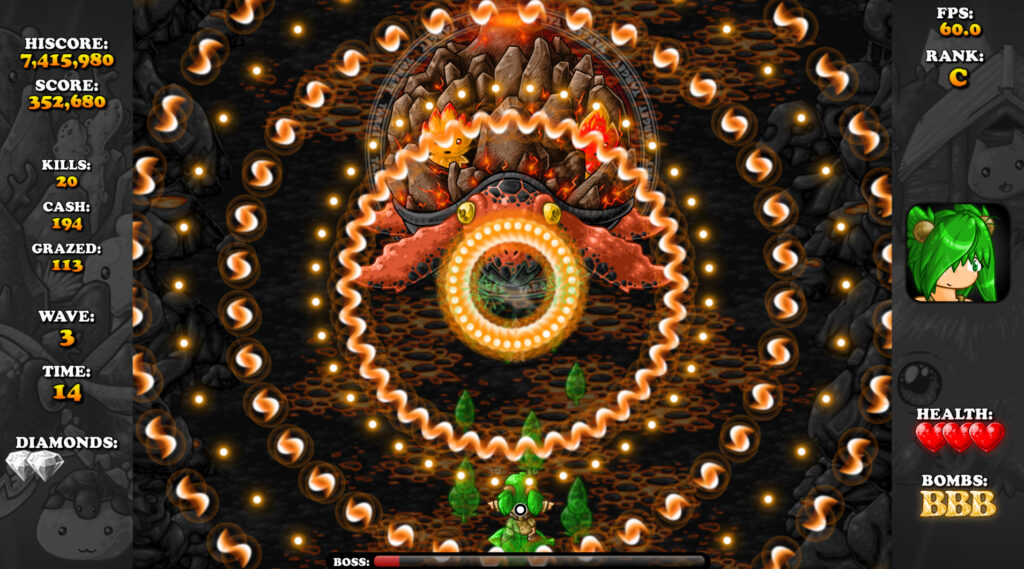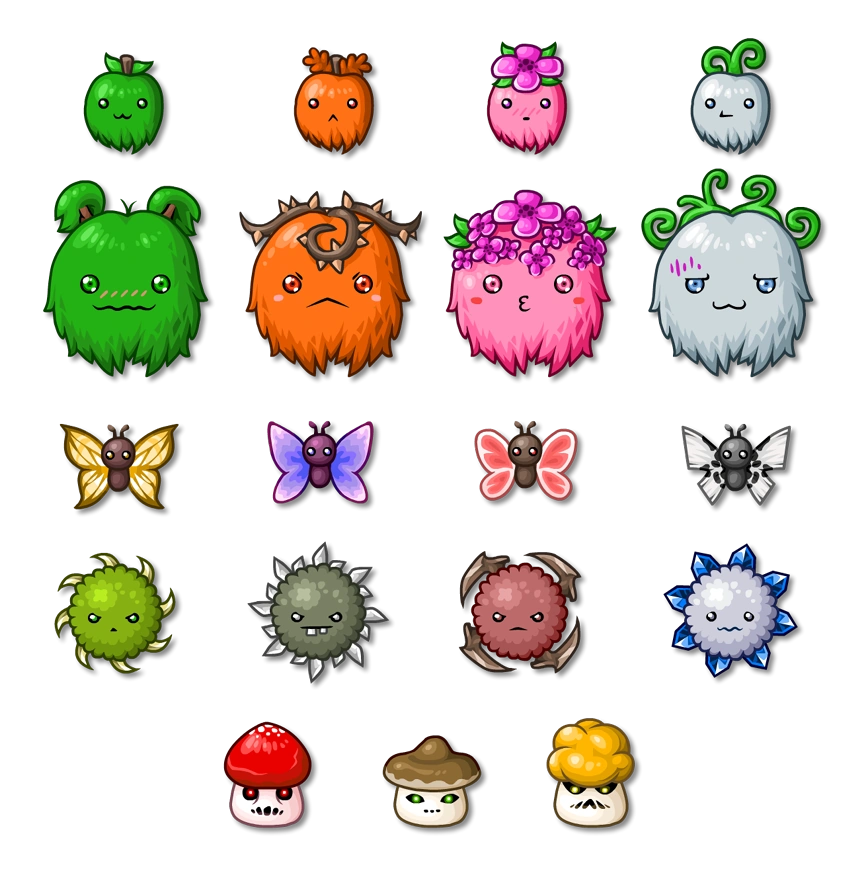Hey everyone – I’m writing this blog to spill my thoughts about my experience with AI so far.
I’ve been exploring it in various ways recently, but am by no means an expert, so my views are likely to change in the future.
— Programming —
Recently I’ve been noticing that the quality of Google searches has gotten much worse – to the point where finding answers for ActionScript 3 programming questions is nearly impossible. You might say, “Matt, AS3 is an extinct language, there’s not going to be any results.”, but this isn’t right. There are plenty of online resources for the language (such as official docs, forums, textbook snippets, etc) that were previously searchable, and the language is still used and updated to this day (by HARMAN instead of Adobe now). I don’t see these relevant results at the top of Google searches any more! And other programmers have told me that I’m not hallucinating – this is happening for modern languages too. And the news seems to confirm that Google is pivoting to a brave new strategy of intentionally making their results worse so that users spend more time searching and see more ads.
So that’s great.
I’ve never been satisfied with the search results of DuckDuckGo (I do try to use it), so with the death of Google, I’ve instead started asking AI chat bots more questions. And I’ve been surprised by the results. For programming, I’ve mainly been using Grok (since I’m still wasting time on Twitter anyway) and it’s very good at not only producing snippets of code, but also explaining how each step works, and which parts of the code you may want to tweak.
It does occasionally hallucinate things, which betrays its thought process – it seems to be using a lot of examples from similar languages like JavaScript, and translating them into ActionScript 3 – and this means it sometimes includes a reference to a library that doesn’t exist in AS3. Luckily, I’m experienced enough to spot mistakes like this quickly, and Grok will acknowledge the mistakes when called out on them.
So it definitely still pays to be an experienced programmer, but Grok’s outputs are also very informative and can help you learn quickly, assuming you take the time to actually read what it gives you, and don’t just copy and paste mindlessly.
I would describe using Grok as something like, “a search engine that creates personalised results, just for you.” And as the meme goes, a large part of programming work is indeed just using Google to look up syntax and the solutions to common programming and design problems.
But there are other options! I hear some IDEs have AI powered code-completion!
That’s not something I’ve tried out yet, as I don’t really feel I need it, but who knows?
Another thing I’ve tried using AI for is data entry. I asked ChatGPT to write a Python script that would extract all the Chinese strings from an AS3 code file, and list them in a plain text file, so I could easily upload a correctly formatted list of achievement names and descriptions to Steam. In the past I’ve lazily done this manually, but the clever option would have been to learn how to use Python and regular expressions. But nowadays it seems to be enough to know that this solution exists, and a bot will figure it out for me! I still need to phrase the prompt correctly, and quickly double check that the results are correct – but it’s way faster than doing the job manually.
Anyway, it’s my understanding that AI still can’t write complete programs very well, and despite the claims of CEOs, I don’t think it’s going to replace skilled programmers just yet – but it does seem to be replacing Google as a favourite programming tool for experts, and I think it can be a genuinely helpful learning tool too. Especially in the case of niche languages like AS3.
— Art —
Art is more complicated. It’s a totally different game from programming.
In programming, the end users only care about what the program does, and how you accomplish that doesn’t matter in most cases.
But in art, the process matters a lot!
The person you are and the medium you use will have a noticeable impact on the results, down to each brush stroke, and an art appreciator will care about the lore behind the work. So I think if you rely on AI a lot in your creative work, you’re making a lower quality product, and I think it’s fair to say that if you lie about your AI usage, you’re committing some type of fraud.
Having said that, I think it’s morally fine to sell counterfeit products – as long as they’re labelled correctly. For example, Lego is expensive, and if someone wants to buy a Chinese knock-off for 75% cheaper, I think that’s their choice to make, as long as they are not deceived.
In the same way, I find AI-generated content much less offensive when it is labelled as such, but I wouldn’t call it “art”.
Things get murky when you have an artist using AI to assist their work. For example, I know some artists will use AI to generate an image, and then they will paint that image themselves. I personally find that pretty lame, but some people might be okay with that.
In terms of personal experience, I’ve tried generating images occasionally out of curiosity, to see what AI can do. It seems to really struggle to create anything that there isn’t a lot of training data for. I asked various bots to generate a cat with no legs for me, and they couldn’t do it. It also struggles to make very specific changes to an image, like “make sure the cat has the same number of whiskers on both sides of its face”.
So I guess the people who will benefit the most from AI in creative work are the people who were already creating fairly bland and derivative products – where the details and level of innovation don’t matter very much. I think people on the cutting edge – iconic indie game developers and artists – probably won’t be impacted by the tech. But artists who do more generic work will surely lose employment opportunities.
When I spot unlabelled AI generated images out in the wild – on magazine covers, children’s picture books, food packaging, adverts – I think it looks cheap and trashy. But at the same time, the average person won’t notice or care. It’s “good enough” for most trivial purposes. I think that’s quite unfortunate, as it deteriorates the quality of our culture.
So far I haven’t used any sort of AI in my creative work.
But there are situations where I could imagine using it – like when I quickly need a stock image of a lens flare, or a very simple background, and some crappy stock image platform wants to charge me $100 for a license. I think that again comes down to corporations ruining the modern internet – resources like that used to be free and easy to find!
Another situation could be if I needed to quickly prototype some designs – maybe try out different color schemes or layouts – AI could potentially help me find something that looks good before I start working on the final illustration. But I don’t think my art is complicated enough to require anything like that.
Finally, it could just be used as an advanced version of a Photoshop filter. For example, maybe you have the rights to an existing image, but you want to make it look more like an oil painting for a house in your 3D game, and it can create that effect while maintaining the soul of the image.
I don’t think I see anything inherently wrong with those last 3 examples, if they’re done tastefully.
Most people don’t have unlimited time or money to get their ideal results, and maybe some compromises like that could be made. But luckily I’m not in a situation where I need that.
Anyway, AI can definitely produce pretty pictures, but I wouldn’t call them “art”, and I don’t think its use improves the quality of any artist’s creative work – but maybe it can be used to skip some of the boring parts. I think it can be fun as a novelty – especially on YouTube – where non-artists can produce some, uh… “interesting” content that would never exist otherwise.
Maybe the tech will improve in the future, or maybe artists will find better ways of using it, but at the moment I struggle to find examples of AI being used to create anything meaningful outside of some novelties. I’m open to seeing more examples though.
— Writing —
More so than programming or even art, I feel that language is a more critical part of our humanity that we should not seek to automate. If you’re using AI to write messages to your mom, your girlfriend, or even your boss, I think you are harming your ability to communicate and form relationships. You might as well give yourself a lobotomy.
Relative to programming and art, writing is also not very time consuming!
I’ve written this whole blog faster than I could make a detailed illustration!
And I’ve organised my thoughts and relaxed while doing it!
I know that it probably isn’t as easy for everyone, but I think you should keep writing even if you suck at it. It’s healthy to practice articulating your thoughts and feelings.
I don’t even read articles on unknown websites any more because they are overwhelmingly likely to have been produced by a bot – and you can tell because the bots don’t know what details in the text actually make it meaningful or interesting to a human reader. For example, an AI generated eBay item description for used Lego might tell me that “Lego is made of many parts and may be a great gift for children” – obviously I already know this if I’m searching for Lego! What I want to know is the condition of the item – which only the human seller can tell me – but they won’t because the AI has made them lazier!
Basically, I feel that any text written by bots pretending to be humans is an abomination and an insult to our humanity, more so than any other AI uses I’ve seen so far. I don’t think I even need to get into the damage it’s done on social media platforms and how easy it is to spread propaganda now.
When it comes to creative writing, maybe AI could be useful for brainstorming ideas, but even there, I haven’t found it to be particularly creative. Maybe about as useful as a thesaurus or baby name generator.
— Other Concerns —
There’s been a lot of talk about the energy usage of AI tech. My opinion is always that we should move to sustainable and renewable energy sources. We should aspire to create a future where energy is plentiful and clean. I don’t think wanting people to use less energy is a positive outcome to strive towards. And hopefully, this may be a problem that the market can sort out: if AI is truly using a disproportionate amount of energy relative to its usefulness, then companies will have to price it higher, and only people who genuinely need it will continue paying for it.
A lot of artists in particular, are mad that AI is trained on our content, without permission!
That really sucks, but even now, I’m not sure enough people care about digital rights to have an impact on policy. Many governments seem to see AI as the next economic boom, so it’s gonna take a lot of lobbying to implement some strong regulations against it. Attempts to poison AI training data have been entertaining, and in my opinion, the most effective approach will be to get the attention of huge corporations: Make images of Mickey Mouse doing 9/11 until there’s some sort of crackdown on unrestricted data scraping.
I think a similar approach would work with the issue of deep fakes. If it’s not illegal in your country yet, then start putting your politicians into porn videos until it is.
I think a lot of the main issues with AI come down to problems with capitalism in general – why should a small handful of billionaires be allowed to profit from a platform that’s only valuable because of the content that millions of users created? Reddit, Facebook, Twitter, YouTube, Spotify – they’re only valuable because users created everything that’s worth seeing on them. And that content is being used to train AI, which is being used to create impersonations of content, so that these huge companies don’t need to keep paying out any sort of royalties to the creators. It’s all looking rather dystopian.
There’s no reason platforms like this need to be operated for profit – Wikipedia is a great counter example. I guess in the near term, the best you can do is to give as little money as you can to big tech companies, and support creators directly through Patreon payments or other means. And in the longer term, advocate for regulations in your country, and maybe something productive will come of it once the ruling class starts being impacted.
Things are changing so fast that I’m not gonna make any predictions about what the future may look like, I simply hope that this new tech doesn’t make wealth inequality much worse, and that people don’t forget how to use their God-given brains.
—
Anyway, that’s all I’ve got for now.
Maybe I’ll update this blog later, or make a new one, as my opinions change.
Let me know if you have any opinions or know of interesting examples of AI usage in any field!




